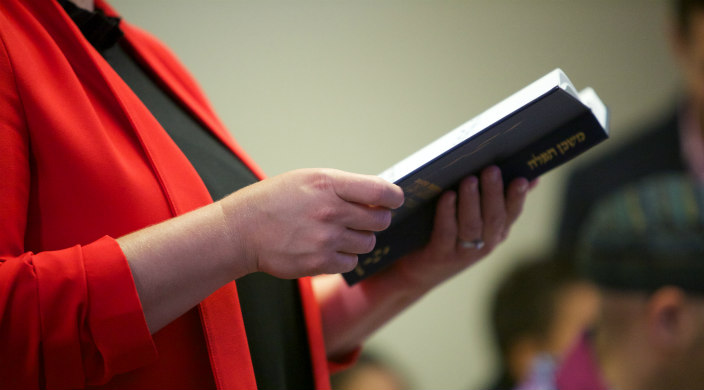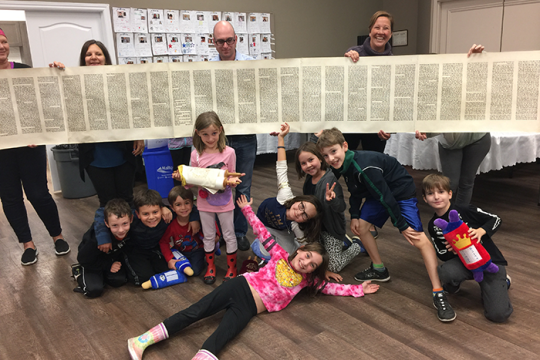
Why pray to a silent God who is not looking down at us and waiting to hear what we want or legitimately need? Why pray to a God who does not need our prayers; who will not circumvent nature with miracles; who has charged us with the responsibility for righting the wrongs and curing the ills that we might be praying about?
Why pray?
We pray to connect with our sacred tradition, to read and speak and sing the words of ancestors who felt the presence of God and who articulated the will of God as they understood it.
We pray so that we may reverently and humbly approach an understanding of what the purpose is of our God-given lives, to help us, as Einstein put it, "draw God's lines after Him.”
We pray so that we might understand our finitude and yet be inspired to recognize that very finitude as an essential element of the Infinite.
We pray so that we might quicken that bit of divinity that lies, so often dormant, within us.
We pray in the midst of a community so that we may feel a kinship with people who, as we, are seeking. We gain strength from them and, in turn, we strengthen them.
We pray so that we may be reminded that God created us to perfect the world as co-creative partners.
We pray so that we may be reminded to emulate the holiness of God in our daily lives, Such prayer is not intended to influence God; rather it is intended to make us better women and men.
But can one truly relate to and speak to a God who is infinite and immutable? Are there such things as mystical moments for men and women who do not conceive of God as a providential presence? Yes, oh yes!
I felt the presence of God and I spoke to God when my wife gave birth to each of our children. I felt God’s hand on mine when, in a Jerusalem mortuary, I closed my father's eyes.
I felt God’s presence when, standing among a group of rabbis, I cried through the Kaddish on a wintry day in an Auschwitz crematorium.
I felt God’s presence in the synagogue when I stood before the ark on Yom Kippur and joined the cantor in singing “Avinu Malkeinu.”
All of our seeking – in the synagogue, in the church, in the mosque, in the woods, in the hospital chapel, in the concert hall, on the heights or in the abyss – all of our seeking will prove infinitely worthwhile, if we finally understand that, as we pray, God is entering our hearts.
As we pray, we take a small step toward understanding what God wants from us.
One of the prayers that moves me closer to an understanding of God’s design for humanity is from the daily evening service, recited just before the Sh’ma. The opening words, Ahavat olam, are taken from a prophesy of Jeremiah about the eternal love between God and Israel [31:3]:
You have loved Your people Israel with an everlasting love. You taught us Torah and commandments, laws and statutes. Therefore, Adonai, our God, when we lie down and when we rise up, we will meditate on Your laws, and we will rejoice in the words of Your Torah and Your commandments forever, for they are our life and the length of our days…. May You never take away Your love for us….
There is no substitute for heart-felt personal prayer, prayer that may be inspired by events in our daily lives or moments of crisis. But one becomes accustomed to the exercise of prayer through familiarity with the traditional prayers of the siddur (prayer book). They provide us with the vocabulary and the inspiration to approach the unapproachable. We utter these prayers not to influence God but to influence ourselves to act as we believe God would want his creatures to act. A 20th-century rabbi, Abraham Joshua Heschel, summed it up very nicely: “Prayer cannot mend a broken bridge, rebuild a ruined city, or bring water to parched fields. But prayer can mend a broken heart, lift up a discouraged soul, and strengthen a weakened will.”




